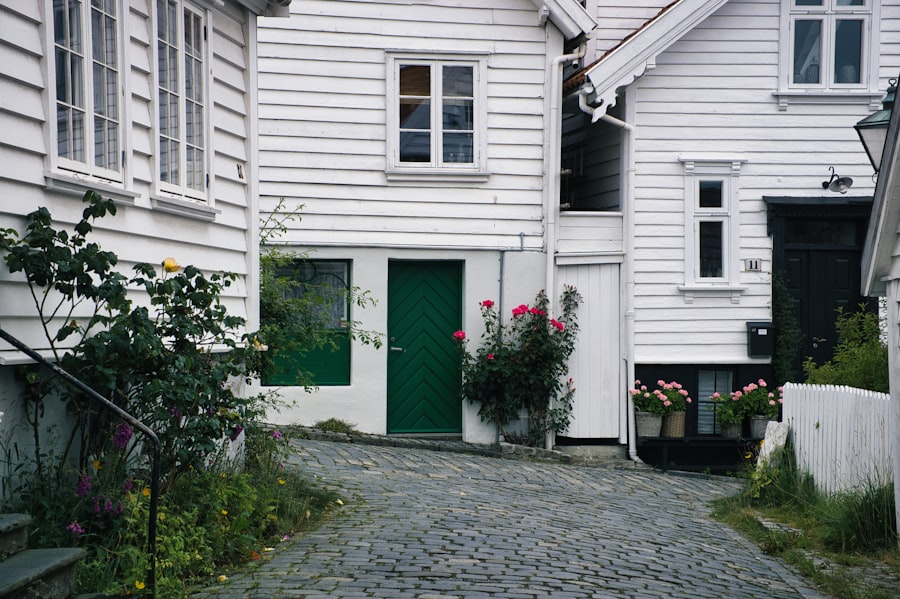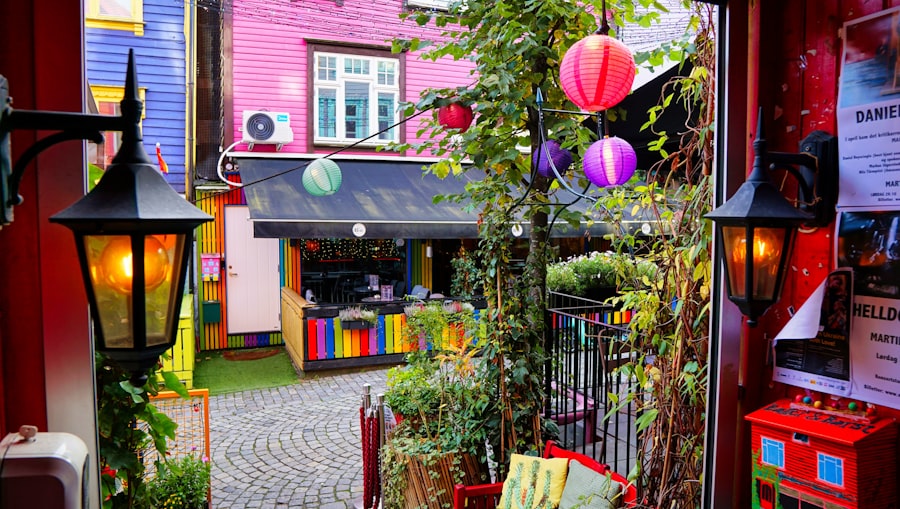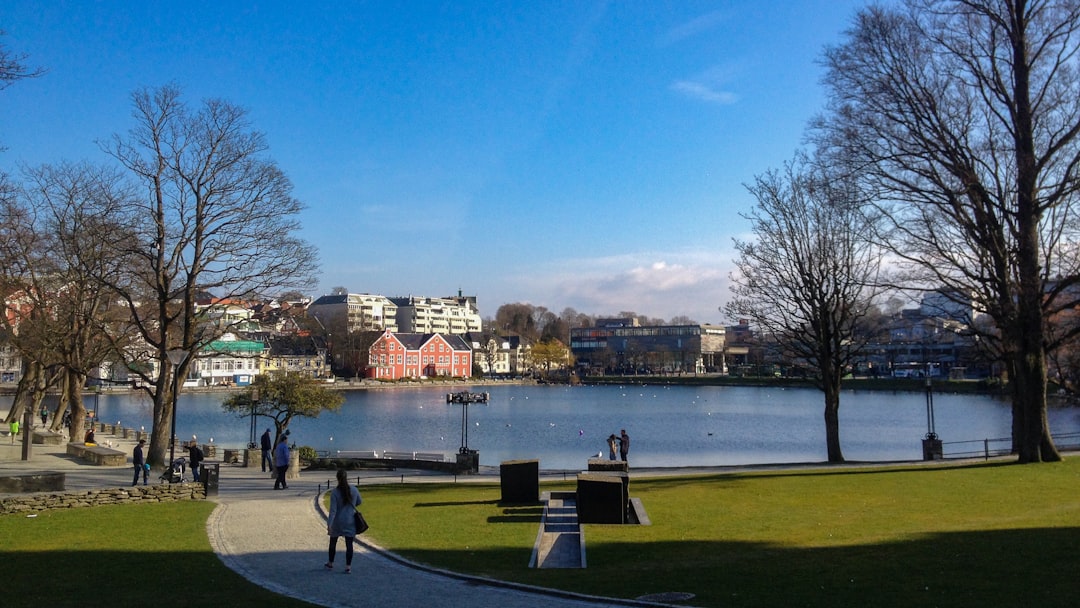Navigating the parking landscape in Norwegian cities can be a daunting task for both residents and visitors alike. With a growing population and increasing numbers of vehicles on the roads, local authorities have implemented a range of parking regulations to manage this demand effectively. These rules are designed not only to ensure the smooth flow of traffic but also to promote sustainable urban living.
Understanding these regulations is crucial for anyone looking to park in urban areas such as Oslo, Bergen, or Stavanger. Parking rules in Norway are often characterised by their complexity and variability, depending on the city and even specific neighbourhoods. From time-limited parking zones to designated areas for residents, the regulations can differ significantly.
Moreover, the introduction of technology has transformed how parking is managed, with many cities adopting digital solutions for payment and enforcement. As such, it is essential for newcomers and long-term residents alike to familiarise themselves with the local parking rules to avoid fines and ensure compliance. Plan your relocation with confidence. Book a personal meeting with the Norway Relocation Group today. https://norwayrelocation.no/one-hour-strategy-session/
Summary
- Parking rules in Norwegian cities are strict and residents need to be aware of the regulations to avoid penalties.
- ‘Beboerparkering’ is a concept that allows residents to apply for parking permits in designated areas near their homes.
- Residents can apply for different types of parking permits based on their specific needs and circumstances.
- To apply for a ‘Beboerparkering’ permit, residents need to submit an application form along with supporting documents to the local authorities.
- Eligibility for ‘Beboerparkering’ permits is based on factors such as residency status, vehicle ownership, and parking availability near the residence.
Understanding the Concept of ‘Beboerparkering’
At the heart of parking regulations in many Norwegian cities is the concept of ‘beboerparkering’, or resident parking. This system is designed to prioritise parking spaces for those who live in specific areas, thereby alleviating the pressure on public parking facilities. The rationale behind ‘beboerparkering’ is straightforward: it aims to ensure that residents have access to parking close to their homes, particularly in densely populated urban areas where space is at a premium.
The ‘beboerparkering’ scheme typically involves designated zones where only residents with valid permits can park their vehicles. This not only helps to reduce congestion caused by non-residents seeking parking but also fosters a sense of community among those living in the area. By limiting parking availability to residents, cities can create a more pleasant living environment, free from the noise and pollution associated with transient parking.
Types of Parking Permits Available for Residents

In Norway, there are various types of parking permits available under the ‘beboerparkering’ scheme, each tailored to meet the needs of different residents. The most common type is the standard resident permit, which allows individuals living within a designated area to park their vehicles in specified zones. This permit is typically valid for a set period and can be renewed as needed.
Additionally, some cities offer special permits for specific circumstances. For instance, there may be permits available for residents with disabilities, which provide access to designated parking spaces closer to their homes. Furthermore, temporary permits can be issued for guests or visitors staying with residents, ensuring that they too have access to convenient parking options during their stay.
Understanding the different types of permits available is essential for residents looking to navigate the complexities of urban parking effectively.
How to Apply for a ‘Beboerparkering’ Permit
Applying for a ‘beboerparkering’ permit is generally a straightforward process, although it may vary slightly from one city to another. Typically, residents must submit an application through their local municipality’s website or office. The application usually requires proof of residency, such as a utility bill or rental agreement, along with details about the vehicle that will be parked.
Once the application is submitted, it is reviewed by the relevant authorities, who will assess whether the applicant meets the eligibility criteria. In many cases, permits can be issued relatively quickly, allowing residents to secure their parking rights without undue delay. However, it is advisable for applicants to check their local regulations and procedures to ensure they have all necessary documentation ready when applying.
Eligibility Criteria for ‘Beboerparkering’ Permits
To qualify for a ‘beboerparkering’ permit, applicants must meet certain eligibility criteria set by their local municipality. Generally, these criteria include being a resident of the area where the permit is sought and owning or having access to a vehicle that will be parked in the designated zone. Some municipalities may also require proof of vehicle registration that matches the applicant’s address.
In addition to these basic requirements, some cities may impose additional conditions based on local policies. For example, there may be restrictions on the type of vehicle eligible for a permit, such as limitations on commercial vehicles or those that do not meet specific environmental standards. Understanding these criteria is crucial for residents seeking to obtain a permit and avoid potential complications during the application process.
Cost and Duration of ‘Beboerparkering’ Permits

The cost of obtaining a ‘beboerparkering’ permit varies across Norwegian cities and can depend on several factors, including the type of permit and its duration. Typically, municipalities charge an annual fee for resident permits, which can range from a modest sum to more substantial amounts depending on local policies and demand for parking spaces. The duration of these permits also varies; most are issued for one year but may be renewable based on ongoing residency and compliance with local regulations.
Some municipalities offer shorter-term permits for specific situations, such as temporary residents or visitors. Understanding the financial implications and duration of permits is essential for residents planning their parking needs in urban environments.
Benefits of ‘Beboerparkering’ for Residents
The ‘beboerparkering’ scheme offers numerous benefits for residents living in urban areas. One of the most significant advantages is the assurance that they will have access to parking spaces near their homes, reducing the stress associated with searching for available spots in crowded city centres. This convenience can greatly enhance the quality of life for residents, allowing them to focus on other aspects of daily living rather than worrying about where to park.
Moreover, ‘beboerparkering’ contributes to a more sustainable urban environment by encouraging residents to use public transport or alternative modes of transport when feasible. With fewer non-residents occupying valuable parking spaces, cities can reduce traffic congestion and lower emissions associated with idling vehicles searching for parking. This not only benefits individual residents but also contributes positively to the overall health of urban communities.
Enforcement of Parking Rules and Penalties for Violations
To maintain order within the ‘beboerparkering’ system, municipalities enforce strict rules regarding parking compliance. This enforcement typically involves regular patrols by parking wardens who monitor designated zones for violations such as unauthorised parking or expired permits. In cases where violations are detected, penalties are imposed in the form of fines or tickets.
The penalties for violating ‘beboerparkering’ rules can vary significantly depending on the severity of the infraction and local regulations. In some instances, vehicles parked without valid permits may be subject to towing at the owner’s expense. As such, it is crucial for residents to remain vigilant about adhering to parking rules and ensuring that their permits are up-to-date to avoid unnecessary fines or complications.
Challenges and Controversies Surrounding ‘Beboerparkering’
Despite its benefits, the ‘beboerparkering’ system has not been without its challenges and controversies. One common criticism revolves around the perceived inequity of access to parking spaces, particularly in areas with high demand where competition among residents can be fierce. Some argue that this system disproportionately favours long-term residents over newcomers or temporary visitors who may also require access to parking.
Additionally, there are concerns about how effectively municipalities manage these schemes and whether they adequately address issues such as accessibility for disabled individuals or families with multiple vehicles. As urban populations continue to grow and evolve, it is essential for local authorities to engage with residents and stakeholders to ensure that ‘beboerparkering’ remains fair and effective in meeting community needs.
Alternatives to ‘Beboerparkering’ for Residents
For those who may not qualify for a ‘beboerparkering’ permit or prefer alternative options, several alternatives exist within Norwegian cities. Public transportation systems are robust in many urban areas, offering convenient access to various destinations without the need for personal vehicles. Buses, trams, and trains provide efficient means of travel while reducing reliance on cars.
Additionally, car-sharing services have gained popularity in recent years as an alternative mode of transport for residents who may not require a vehicle on a daily basis. These services allow individuals to rent cars on an as-needed basis, providing flexibility without the burden of ownership or long-term parking commitments. Exploring these alternatives can help residents navigate urban living more effectively while contributing to sustainable transportation practices.
Future Developments and Changes in Parking Rules in Norwegian Cities
As urban landscapes continue to evolve and adapt to changing societal needs, so too will parking regulations in Norwegian cities. Local authorities are increasingly recognising the importance of sustainable transport solutions and may implement further changes aimed at reducing car dependency while promoting public transport usage. Future developments could include enhanced digital solutions for managing parking permits and payments, making it easier for residents to navigate their options seamlessly.
Additionally, there may be increased emphasis on integrating electric vehicle charging stations within residential areas as part of broader efforts towards sustainability. For those considering relocation or seeking assistance in navigating these changes, organisations like the Norway Relocation Group can provide invaluable support throughout this process. Their expertise can help newcomers understand local regulations and find suitable housing options that align with their needs.
As part of this transition towards more sustainable urban living, language proficiency will also play a crucial role in helping newcomers integrate into Norwegian society effectively. The NLS Norwegian Language School in Oslo offers comprehensive courses designed specifically for those looking to improve their language skills while adapting to life in Norway. By investing time in learning Norwegian through structured courses at NLS, individuals can enhance their ability to engage with local communities and navigate practical aspects such as parking regulations more confidently.
In conclusion, understanding parking rules in Norwegian cities is essential for both residents and newcomers alike. The ‘beboerparkering’ system plays a vital role in managing urban parking demands while providing benefits that enhance quality of life. As cities continue to evolve towards more sustainable practices, staying informed about changes in regulations will be crucial for all who call these vibrant urban centres home.
Register for a Norwegian class at the NLS Norwegian Language School now!

